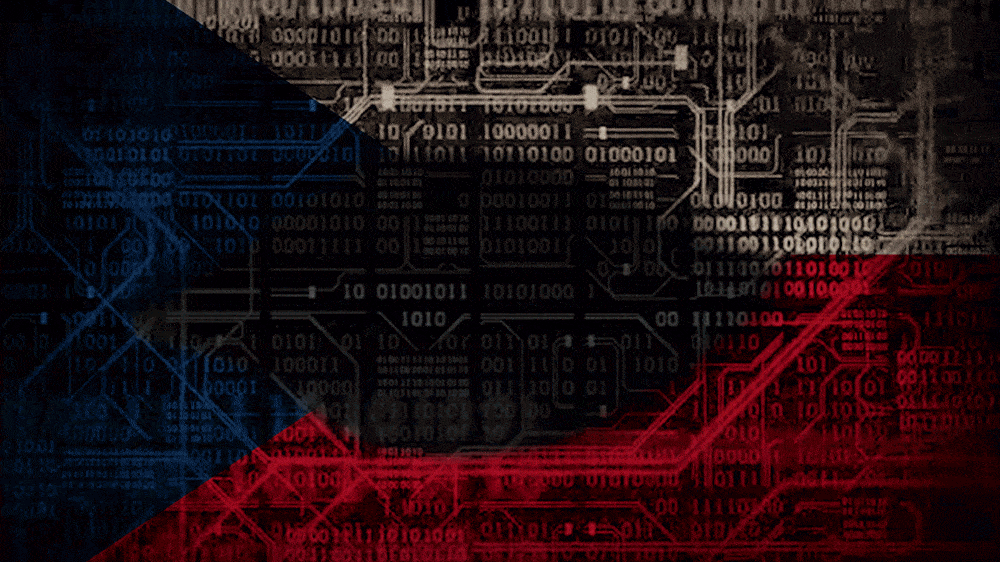Chinese telecommunications giant Huawei is establishing a beachhead for itself in Central Europe—even as it is getting shut out of the U.S. market over persistent concerns it’s stealing data and performing surveillance for Beijing. Now, The Daily Beast has learned, Huawei’s push into the Czech Republic is set to escalate.
Huawei has applied for a security clearance in the Czech Republic, two sources based in that country have confirmed to The Daily Beast. It’s the latest in a years-long effort to butter up the Czech president and ingratiate itself to the Czech public. Huawei’s PR push even involves the hockey superstar Jaromir Jagr.
Unlike in Great Britain or the United States, in the Czech Republic, Huawei “is not generally perceived by the public as a security threat because its products are everywhere. They don’t associate it with a security risk,” said Petr Lang, program director at the Prague Security Studies Institute.
But Czech intelligence does. The intelligence services have issued multiple public reports warning of Huawei’s security risks. A 2014 counterintelligence report warned that Huawei and ZTE occupied a growing share of the Czech telecommunications market and called this a security risk, noting that both companies were suspected of working with Chinese intelligence services. In 2016, citing these reports, the Czech ministry of the interior rejected Huawei’s bid for a pilot project to provide systems for Czech interior security.
Others in Prague seem to have turned a blind eye, though. “[The intelligence reporting] doesn’t seem to have had any effect on the presidential office,” said Martin Hala, director of Project Sinopsis, which tracks Chinese influence in the Czech Republic.
And that matters because it gives Chinese-made telecommunications a firm footing in Europe. Beijing has made the export of digital surveillance equipment an explicit aspect of its foreign-policy push around the world. Chinese firms such as Huawei and ZTE have denied claims that they do the Chinese government’s bidding, but U.S. and British government reports have labeled Huawei a security risk.
If approved, a security clearance permits Huawei to bid on restricted government contracts that would provide the company with access to sensitive government data and systems. It will also be a boon for the company’s public image, giving it an official stamp of approval from a European Union nation and NATO ally that could then smooth its attempts to expand into Western Europe and elsewhere.
Chinese companies with close ties to the state have spent years cozying up to the Czech government, buying up transportation and media companies, and landing major infrastructure projects. It makes the Czech Republic—a NATO ally and a European Union member—a “back door,” as Czech security experts view it, into Europe for Chinese influence.
Amid growing fears of foreign surveillance and data theft, the U.S. government has long raised the alarm on Chinese telecommunications firms. Lawmakers and the White House have sought to restrict the access that ZTE and Huawei have to the U.S. market and to block U.S. companies from selling them key components.
Those efforts have accelerated in recent months. Lawmakers and security officials from the United States, Canada, Australia, and Britain have issued warnings about the company, which was founded by a former Chinese military officer. In May, the U.S. Department of Defense ordered military bases to remove Huawei phones from retail stores located on base.
All of that reflected longstanding U.S. fears of the company. In 2012, the U.S. House Intelligence Committee issued a report calling Huawei a “national-security threat” and claiming the company had attempted to spy on Americans and to steal intellectual property from U.S. companies. Huawei denies these claims. While Huawei has had success in its bids to build telecommunications infrastructure in many regions around the world, including Europe and Africa, the United States has largely rebuffed its overtures.
The Czech government agency that approves security clearances can perform background checks on companies but does not have the technical capability to check Huawei telecommunications equipment and smartphones for potential backdoors, leading to concerns that potential security risks may go undetected.
While Huawei is facing suspicions from some Western countries, it has largely already won the public relations battle in the Czech Republic itself. That’s partially because it is now ubiquitous and partially because of smart marketing—the company hired Czech hockey star Jagr as its celebrity representative. The public relations boost could be even more valuable for the Chinese company than the contracts; already, Lang said, Czechs’ home routers are largely manufactured by Huawei or ZTE.
“Huawei knows that they are coming under the radar in the U.S., in the U.K., in other western countries, and they are getting nervous about their standing,” said Lang. Applying for a security clearance in the Czech Republic specifically is a smart move, since the clearance process won’t involve a technical evaluation. “They will be looking at the corporate structure, but they won’t be testing for back doors as they do in the U.K.,” said Lang. So approval for a security clearance “won’t prove that Huawei equipment is fine.”
The Czech president is known to have a close relationship with the Chinese government. Since 2014, Huawei has supplied the presidential office with hundreds of smart phones for all its employees, free of charge, in exchange for preferential access to Prague Castle, where the president’s offices are located.
Huawei already has an extensive presence in the Czech Republic’s critical information infrastructure. It built the LTE networks for the country’s major mobile operators, and supplied LTE equipment for Czech mobile operator Telefonica o2 when it launched its LTE network in 2012. The Chinese company has also put in a bid to build a data hub for CEZ group, the partially state-owned energy corporation that runs the country’s nuclear power plants. The bid is likely to succeed, since Huawei often bids below market value and Czech government guidelines stipulate that bids automatically go to the lowest offer in most circumstances.
Huawei “applied for the security clearance,” said Hala, “because they think it might dispel the doubts about their background.”

